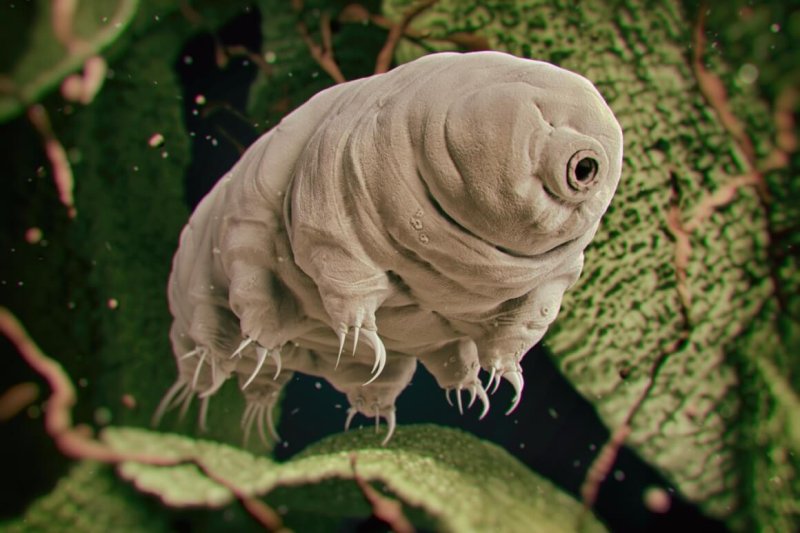Tardigrades may partly owe their ability to survive outer space to having the molecular equivalent of cotton candy.
Water bears, as the creatures are also known, can famously survive just about anything (SN: 7/14/17), including being bombarded with X-rays or cosmic rays, or being doused in hydrogen peroxide. Such radiation and chemical exposure result in production of DNA-damaging hydroxyl radicals, molecules composed of oxygen and hydrogen.
Previous research indicated that a protein called Dsup, for damage suppressor, shields the tardigrade species Ramazzottius varieornatus from radiation. When added to human cells, the protein also protects against radiation. Now researchers have found out how.
Dsup surrounds nucleosomes — DNA wound around proteins called histones — “like a fluffy cloud of cotton candy,” molecular biologist James Kadonaga of the University of California, San Diego in La Jolla and colleagues report October 1 in eLife. That cloud keeps hydroxyl radicals away from DNA.
…
Humans have similar proteins called high mobility group nucleosome-binding proteins or HMGNs. But the researchers don’t yet know whether the human proteins also form a similar shield against DNA-damaging chemicals.
Read full, original post: How tardigrades protect their DNA to defy death































